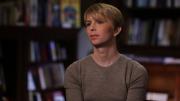Last week was a bad public-relations episode for Harvard. On Tuesday, the Marshall Project, a news organization covering criminal justice, reported that University leadership had reversed the admission of Michelle Jones, who had been recommended for admission to Harvard’s history Ph.D. program; she had served 20 years in prison for the murder of a child she had as a teenager, but subsequently earned a reputation as a promising historian through a prison education program. (Her application was also rejected by Yale, though it’s unclear whether her crime played a role; she has started a Ph.D. at New York University.) Then, last Thursday, the Harvard Kennedy School (HKS) rescinded Chelsea Manning’s appointment as a visiting fellow this fall, after backlash from CIA director Mike Pompeo, J.D. ’94, who canceled a scheduled appearance at the school. Manning had served seven years in prison for leaking classified government documents, after being granted clemency by then-President Barack Obama in January. Both of Harvard’s decisions provoked criticism in the media, and, yesterday, were condemned from within the community by 162 University faculty members who signed a Harvard Crimson op-ed.
“Harvard has prioritized political expediency over scholarly values. Rather than stand on principle and procedure,” they argued, “Harvard has undermined the pursuit of its core academic mission by acting out of fear of negative publicity.” They continued:
With Michelle Jones, the administration took the highly unusual step of overturning the History Department’s decision to admit Jones to its doctoral program. In doing so, it not only violated departmental autonomy in evaluating and admitting students, it disregarded the labor and expertise of its faculty. Faculty of Arts and Sciences administrators appear to have arrived at this decision not because they questioned the Department’s judgment of Jones’s scholarly merits, but out of concern over a potential backlash for admitting a formerly incarcerated student to the University.
The text also urged the administration to add candidates’ criminal history to the University’s existing non-discrimination policies; to provide support for faculty interested in prison education; and to invite Chelsea Manning to speak on BGLTQ issues.
“I think the essay grew out of a shared concern about multiple ongoing problems, including the possible repeal of [Deferred Action for Childhood Arrivals],” said professor of sociology Jason Beckfield, one of the lead authors of the op-ed, along with Phillips professor of early American history Joyce Chaplin and professor of history, race, and public policy Khalil Muhammad. “Deportations of our students are in the same category as overruled admissions decisions (Jones) and withdrawn speaking invitations (Manning) in that they undermine our efforts as educators.”
The signatories are mainly from the Faculty of Arts and Sciences, but the schools of design, divinity, education, government, law, medicine, and public health are also represented. “At present, 160 people have signed the letter [the number has since increased to 162], and I know more people wanted to sign after the deadline passed,” Beckfield said.
Kates professor of English and of African American studies John Stauffer, one of two faculty members who raised questions about Jones’s application, today charged in an online letter in the Crimson that the original Marshall Project report “misrepresents what I emphasized in my interview, which was that Jones’s Ph.D. application garnered widespread support, including my own, despite concern about possible backlash.” In Jones’s case, he wrote, “while [my colleague] and I continued to support her candidacy, we noted some discrepancies that merited additional investigation.”
University officials declined to comment on the op-ed; as a matter of policy, the University does not comment on individual admissions cases. HKS dean Elmendorf also declined to comment; on September 15, he released a statement on his decision to withdraw Manning’s fellowship, stating: “I now think that designating Chelsea Manning as a Visiting Fellow was a mistake, for which I accept responsibility. I still think that having her speak in the Forum and talk with students is consistent with our longstanding approach, which puts great emphasis on the value of hearing from a diverse collection of people. But I see more clearly now that many people view a Visiting Fellow title as an honorific, so we should weigh that consideration when offering invitations.”









